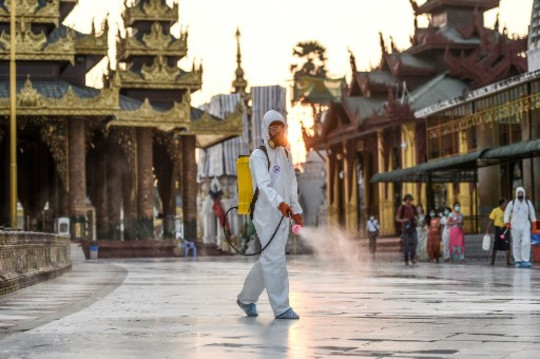Issues in the region have escalated since the outbreak of Covid-19, hindering the media's ability to provide the public with clear, factual information. Already journalists are facing challenges with draconian laws affecting the free flow of information and their ability to produce factual reports on the health crisis. Further, journalist face salary cuts and job losses as companies apply a ‘no work, no pay’ policy while they are forced to shut down to combat the pandemic.
In the Philippines, President Rodrigo Duterte signed the Bayanihan to Heal as One Act of 2020 on March 25 granting him extensive powers to address the Covid-19 outbreak. The Act allows him to punish those who spread fake and alarming information with up to 2 months in prison and up to 1 million pesos (USD19,735.22) in fines. The government has also limited journalists’ access to cover the Luzon quarantine area by refusing journalists media accreditation.
In Indonesia, government officials have continued to hold face-to-face press conferences without enforcing social distancing. Dozens of journalists in Jakarta and Bogor in West Java are under observation after being in contact with sources who have tested positive for Covid-19.Last week IFJ’s affiliate, the Alliance of Independent Journalists (AJI) Indonesia, condemned the face-to-face press conference held by the Coordinating Ministry for Maritime Affairs and Investment on Friday, March 27, in relation to the delivery of aid from China.
In Malaysia there have been calls to hold virtual press conferences to protect the safety of journalists. In a troubling development, on March 29 the Defence Minister Datuk Seri Ismail Sabri accused The Edge of spreading fake news attributed to him on lock down locations. The Edge denied the allegation saying the social media post in question was not posted by their newsroom.
In Timor Leste, President Francisco Guterres Lu Olo announced a state of emergency which began on March 28 and will run until April 26, 2020. The state of emergency will cover several points, including sanitation control at the airports, restriction on citizens’ activities and banning the right to gather. During this health crisis, journalists in Timor Leste do not have specific safety regulations to protect them. The journalist’s union has asked the media owners to provide safety equipment to journalists during the national emergency to ensure journalists’ safety.
In Thailand, Prime Minister Prayuth Chan-ocha has announced an emergency the decree which will be in effect until April 30. The decree gives the government powers to enforce several measures, including the control and censorship of news coverage that contains false information, causes panic or affects national security.
In Cambodia, Prime Minister Hun Sen has considered the option to declare a state of emergency. He mentioned the plan when he spoke to volunteer doctors and healthcare professionals in Phnom Penh. Hun Sen added that he was checking the possibility of enacting Article 22 of the Constitution to request approval from the King to place the country under a state of emergency. The country has enforced strong measures in its attempts to tackle fake news and authorities have arrested 17 people since late January for sharing information about Covid-19.
In Myanmar, the number of Covid-19 cases remains small, sitting at five positive cases as of March 27. Myanmar was slow to recognize the severity of the health crisis, citing that it was “lifestyle and diet of Myanmar citizens” that had protected the country against the virus. The lack of safety protocols, training and strong policies from the media companies to protect journalists on duty will be a huge challenge for media workers during the health crisis.
SEAJU said: “In times of crisis, what is needed is more, not less, independent journalism because the swift and unhampered delivery of information to people not only keeps them abreast of the situation but more important equips them with the knowledge they need to cope and survive.”
SEAJU call on the government to be more open and transparent, allowing journalists to verify the information before they inform the public.
IFJ said: “SEAJU condemns attempts by governments in the region to use this health crisis as an excuse to introduce laws and regulations that suppress media freedoms and criminalise journalism. IFJ recognises that journalists must be able to do their jobs safely and securely to ensure accurate and high quality reporting. IFJ urges governments to support the work of journalists and ensure their safety as part of joint efforts to successfully tackle this health emergency.”

